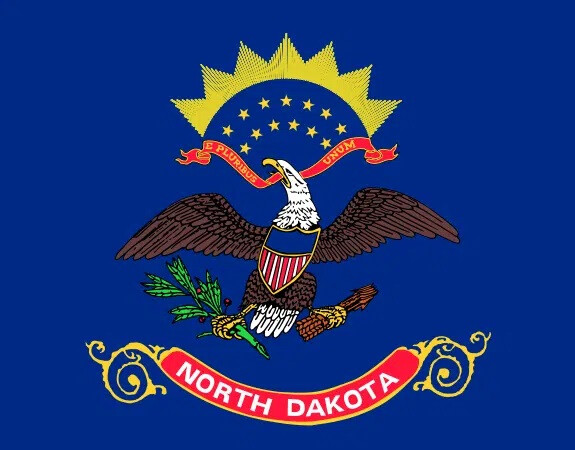
BISMARCK, ND - North Dakota's Legacy Fund, a repository for the state's oil and gas tax revenues, has reportedly incurred an estimated $1 billion in losses this past week due to a sharp downturn in the stock market. However, officials assured a legislative hearing that the fund remains robustly managed and positioned to weather market volatility.
Jodi Smith, interim executive director of the state Retirement and Investment Office, addressed the Senate Appropriations Government Operations Committee on Wednesday, acknowledging the impact of the fluctuating stock market. "Markets will go up and down, and it's how we react to the markets that will determine our outcome," Smith stated. "Our goal is not to be overly reactive to market swings."
The Legacy Fund, established through a voter initiative, held a value of $12 billion as of January 31. The Retirement and Investment Office has not yet released the fund's current valuation. Following her committee remarks, Smith noted that the market had begun to rebound, attributing the recent volatility to President Donald Trump's announcement of tariffs on international imports. "We anticipate that as the market normalizes, we will see a recovery of those losses," she said on Thursday.
Scott Anderson, chief investment officer for the Retirement and Investment Office, explained that the Legacy Fund is diversified to enhance its resilience against market fluctuations. He emphasized that the fund's long-term investment horizon and significant size provide advantages in spreading risk. Nevertheless, he acknowledged, "We recognize that short-term market volatility is an inherent aspect."
North Dakota lawmakers utilize the earnings from the Legacy Fund to finance tax relief and state projects. Anderson clarified that the amount available for legislative appropriation is based on a five-year rolling average of the Legacy Fund's value, mitigating the impact of immediate market downturns. Earnings are defined as 7% of this five-year average, and the $601 million in earnings already allocated for the 2025-27 biennium will not be affected by the recent market volatility, he added.
The principal of the Legacy Fund remains protected and cannot be accessed without a two-thirds vote in the state legislature, a measure that has never been invoked.
In a move to reduce expenses, the Retirement and Investment Office has also been expanding its in-house investment management team, thereby lowering fees paid to external managers. Anderson noted that the growth of the internal investment program allows for more agile and precise rebalancing of the portfolio.
Background of the Legacy Fund: North Dakota established the Legacy Fund to invest and stabilize its substantial financial inflows from its abundant oil and gas resources for the benefit of future generations.
Key Investment Strategy: The Legacy Fund employs a diversified investment strategy across various asset classes with long-term growth potential. This approach aims to minimize sensitivity to short-term market fluctuations and secure stable returns over time.
Causes of Market Volatility: Recent stock market volatility stems from a confluence of factors, including potential U.S. interest rate hikes, inflation concerns, and geopolitical risks. President Trump's announcement of import tariffs, in particular, has amplified uncertainty regarding international trade dynamics, negatively impacting market sentiment.
Future Outlook: Experts anticipate continued short-term market volatility but suggest a potential for recovery based on underlying economic fundamentals in the long term. North Dakota's Legacy Fund, with its long-term investment perspective, is expected to adapt flexibly to market changes.
[Copyright (c) Global Economic Times. All Rights Reserved.]




























